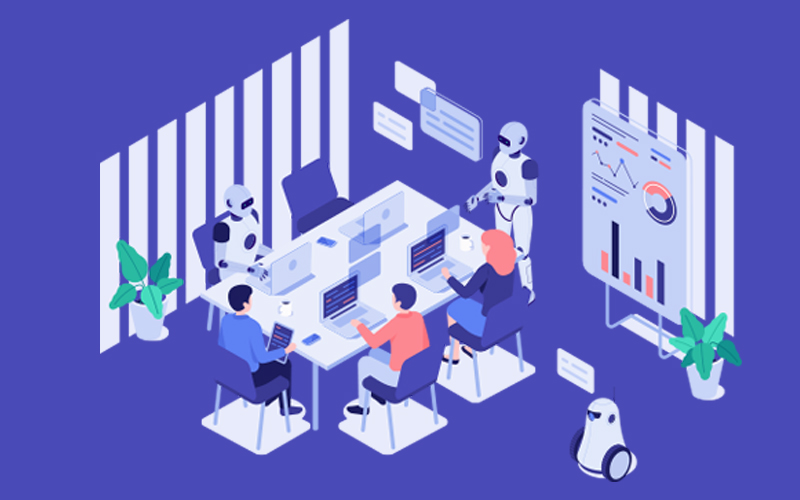We live in a time where technology—particularly Artificial Intelligence (AI)—is reshaping nearly every aspect of life and business. In this environment, enterprises are continually striving to innovate in ways that enhance efficiency, agility, and competitiveness. To that end, Business Process Management (BPM) is an approach to create, manage, analyze, and constantly improve business processes within an organization. Over the decades, BPM has evolved significantly, adapting to the changing needs of organizations and the technologies that support them.
How Traditional BPM Works
Traditional Business Process Management (BPM) focuses on analyzing, modelling, and improving well-defined processes within an organization. Its main objective is to streamline workflows, automate tasks, and improve overall efficiency, especially in predictable and ongoing operations. It is very well suited for processes that are repetitive, have clear steps, and lead to predictable outcomes. In order to reduce manual efforts and errors, many of the tasks within these processes can be automated. Traditional BPM is primarily set up to improve overall business performance by enhancing efficiency and reducing costs.
However, a drawback of traditional BPM is that the systems operate within predefined rules and lack the autonomy to make complex decisions independently. This is where Agentic AI really comes to the rescue and makes a difference for the better!
What is Agentic AI?
Agentic AI refers to a class of AI systems that are capable of acting autonomously. With minimal human intervention, these systems can take actions and decisions, learn on their own, and improve their performance over time to achieve specific goals. Unlike traditional AI models that respond to inputs passively, Agentic AI systems can set and pursue objectives, make context-aware decisions, and adapt strategies based on feedback. Inspired by the concept of intelligent agents, these systems bring a higher level of cognitive functioning, enabling them to function more like human collaborators than automated tools.
The Evolution of BPM
Over the years, BPM began integrating technologies like Robotic Process Automation (RPA), Machine Learning (ML), and Natural Language Processing (NLP). This blend of technologies (often termed Intelligent Automation) brought new capabilities such as faster execution of repetitive tasks through RPA, predictive insights using ML models, and improved customer interaction via NLP-based chatbots. Despite these advances, these systems still operate within predefined rules and lack the autonomy to make complex decisions independently. BPM has now been enhanced by the arrival of Agentic AI which can reason, adapt, and act with a greater degree of independence.
How Agentic AI Helps Improve Traditional BPM
The integration of Agentic AI into BPM transforms it into a dynamic, self-optimizing framework. There are several benefits from this integration – the main one being the fact that rather than waiting for triggers, these systems anticipate needs and thus take up proactive decision making. Leveraging data, these systems are capable of continuous learning and improve over time without the need for manual intervention. They understand and react to the business context in real time, adjusting processes dynamically. They possess the capability to align processes not just to static rules but to evolving business goals. While they can make autonomous decisions, they can also seek human input when necessary and strike a balance between autonomy and control.
Real-World Applications of Agentic AI
Agentic AI is finding its use in several industries, whether it is in supply chain management to autonomously manage inventory, predict demand, and adjust delivery routes in real-time, or in cybersecurity to detect threats by analyzing network activity and automatically responding to potential breaches.
Considering the slew of advantages that agentic AI brings to BPM, top BPM providers are using this state-of-the-art technology to drive end-to-end workflow automation. This significantly enhances efficiency, creates new AI-driven job opportunities, and supports a shift toward value-based pricing and workforce reskilling.
The Way Forward
With rapid advancements in Agentic AI, the traditional model of Business Process Management (BPM) is being fundamentally redefined. Agentic AI is driving a tectonic shift in how processes are managed—infusing them with intelligence, autonomy, and adaptability. To truly leverage the potential of this transformative technology, organizations must enable these autonomous agents to access high-quality, cross-functional data. Only then can Agentic AI deliver on its promise of optimizing decision-making and elevating process performance across the enterprise.
How Can Infosys BPM Help
At Infosys BPM, we help businesses build intelligent, autonomous processes that drive efficiency, agility, and long-term value. Connect with our team today and navigate your next!







